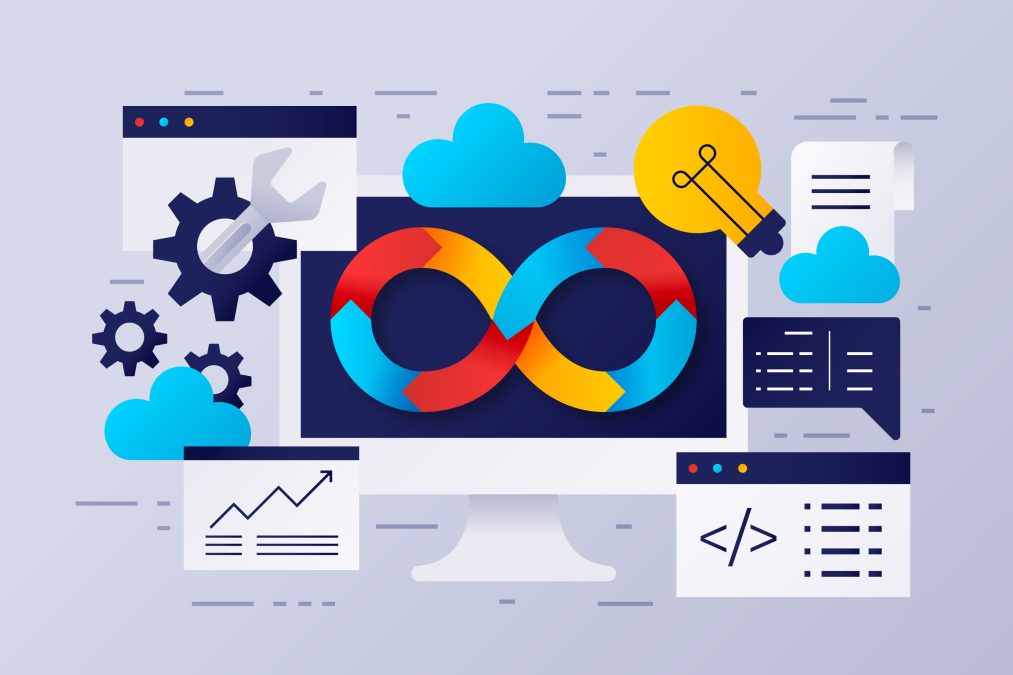In today’s fast-evolving tech landscape, automation plays a crucial role in the success of software development and deployment. Software for DevOps automation is no longer a trend—it’s a foundational approach for building, testing, releasing, and managing software efficiently. Teams across the globe are turning to specialized tools to automate repetitive tasks, improve collaboration between developers and operations teams, and reduce the chances of human error.
In this blog, we explore the concept of DevOps automation, key features to look for, and a curated list of the 10 best software for DevOps automation in 2025 that help accelerate the software delivery process.
What is DevOps Automation?
DevOps automation refers to using software tools and practices to automate the processes involved in software development and IT operations. It bridges the gap between development and operations teams by integrating tools for coding, testing, deploying, and monitoring in one seamless pipeline.
This automation ensures that repetitive tasks are handled quickly and consistently, allowing teams to focus more on innovation rather than manual configurations. From CI/CD pipelines to infrastructure provisioning, automation is essential in reducing delivery time and increasing reliability.
List of Best DevOps Automation
1. Jenkins
Jenkins is one of the most well-known open-source tools for DevOps automation. It provides strong support for continuous integration and continuous delivery (CI/CD), enabling teams to automate various stages of the software pipeline. With hundreds of plugins available, Jenkins can integrate with nearly any tool or platform, making it a top choice for businesses of all sizes.
2. GitLab CI/CD
GitLab offers an integrated DevOps lifecycle platform with its powerful CI/CD tools. Its pipelines are defined using simple YAML configuration files and can handle everything from automated testing to deployment. GitLab CI/CD stands out because it combines source code management with DevOps automation in a single interface.
3. CircleCI
CircleCI is a cloud-based platform focused on fast, automated CI/CD. It supports Docker, Kubernetes, and custom environments, and allows flexible workflows for testing and deployment. It is ideal for teams that require high-speed pipelines and want to minimize time between code commit and production.
4. Azure DevOps
Azure DevOps by Microsoft is a full suite of DevOps tools, including Azure Pipelines for CI/CD, Azure Boards for project management, and Azure Repos for version control. It’s perfect for enterprises needing seamless integration with the Microsoft ecosystem and offers extensive support for cloud and on-premise deployments.
5. Ansible
Ansible is a leading configuration management tool used for provisioning servers, deploying apps, and automating day-to-day operational tasks. Its simple syntax using YAML makes it approachable even for beginners. Being agentless, it reduces complexity and is widely adopted in managing cloud infrastructure and large-scale IT environments.
6. Puppet
Puppet is designed to manage infrastructure as code and automates the configuration of servers. It’s popular in large enterprises that demand consistent environments and strict control over their infrastructure. Puppet enforces desired states across your environment, ensuring security and compliance standards are met.
7. Chef
Chef automates infrastructure using code and offers powerful tools for system configuration and deployment. It uses Ruby-based domain-specific language (DSL) to write configuration scripts. Chef Automate enhances visibility, security, and governance in your DevOps pipeline, making it a strong player in enterprise environments.
8. Terraform
Terraform by HashiCorp is an industry-leading tool for automating infrastructure deployment using IaC principles. It allows users to define cloud and on-prem resources in a declarative manner and manage them efficiently. Terraform supports major providers like AWS, Azure, and GCP, offering flexibility and repeatability in provisioning.
9. Bamboo
Bamboo is Atlassian’s answer to CI/CD and DevOps automation. It integrates deeply with JIRA and Bitbucket, providing traceability from coding to deployment. With parallel testing, deployment projects, and automated workflows, Bamboo streamlines DevOps processes especially for teams already within the Atlassian ecosystem.
10. Kubernetes
While Kubernetes is best known as a container orchestration platform, its automation capabilities make it vital to DevOps. It automates container deployment, scaling, and operations, especially in microservices architectures. Paired with tools like Helm and ArgoCD, Kubernetes becomes an essential part of any software for DevOps automation toolkit.
Also Read : Software for Web Development
Key Features of Software for DevOps Automation
When choosing the right software for DevOps automation, key features to consider include CI/CD integration for automating code deployment, and Infrastructure as Code (IaC) to manage systems through code. Look for version control compatibility with tools like Git, along with monitoring and logging to track performance and errors. Strong security features, cloud support for platforms like AWS and Azure, and scalability for handling projects of all sizes are essential. Lastly, effective tools should enhance team collaboration between developers and operations.
Empowering your DevOps Journey with Automation
DevOps automation is the foundation of efficient, reliable, and scalable software development in 2025. Whether you’re managing small applications or enterprise-scale environments, the right software for DevOps automation can drastically reduce development cycles, eliminate manual errors, and improve team collaboration.
Each tool mentioned in this list brings something unique to the table—whether it’s Jenkins’ plugin-rich environment, Terraform’s infrastructure as code, or GitLab’s all-in-one platform. Evaluate your team’s needs, existing infrastructure, and future goals to select the tools that align best with your DevOps journey.
By integrating automation into your development lifecycle, you ensure faster releases, better product quality, and a more agile organization ready to meet modern software demands.
Interesting Reads
WordPress Plugins for Sales Tracking
WordPress Plugins for Bulk Product Editing





